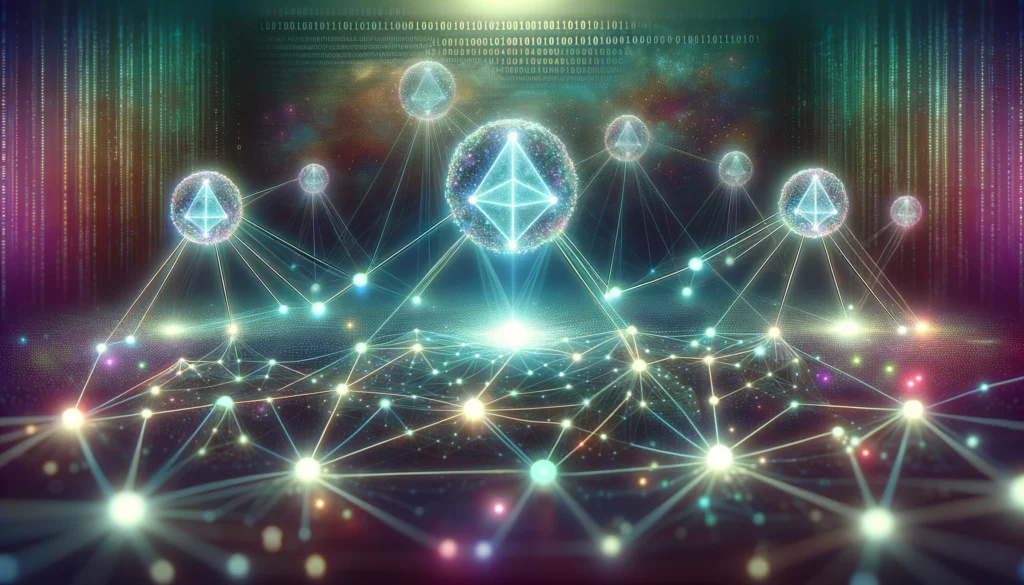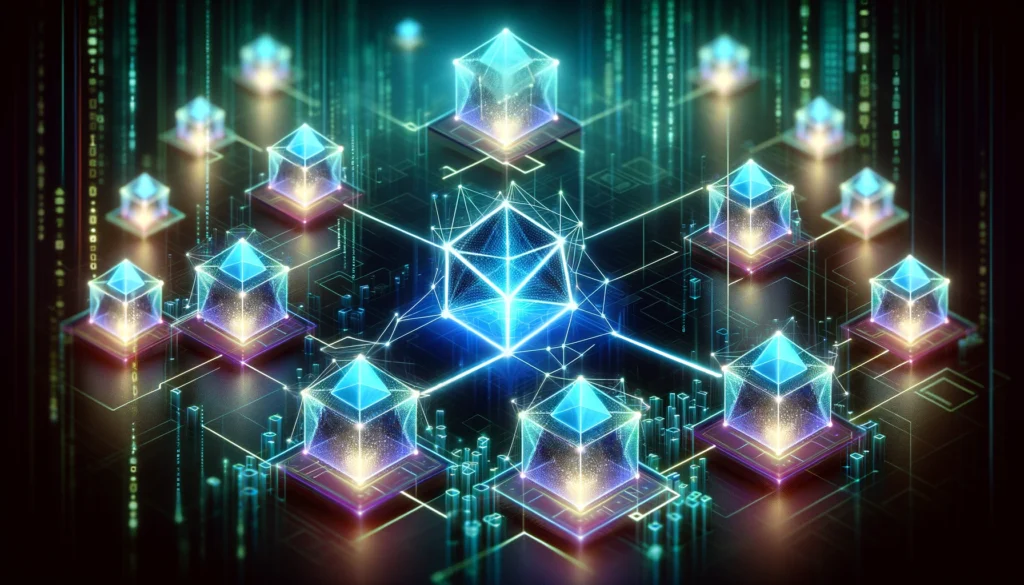Blockchain technology has paved the way for innovative concepts in digital governance, the most notable being Decentralized Autonomous Organizations or DAOs. This guide aims to demystify the concept of DAOs, particularly for newcomers in the cryptocurrency space. By understanding DAOs, traders, and enthusiasts can better navigate the increasingly complex world of digital assets and blockchain technology.
What is a DAO? The Fundamentals of Decentralized Autonomous Organizations
A DAO stands for Decentralized Autonomous Organization. It’s a type of organization represented by rules encoded as a computer program that is transparent, controlled by the organization members, and not influenced by a central government. These rules, written in smart contracts, are stored on a blockchain.
Imagine a virtual company operating based on its members’ decisions without central authority. A DAO for an online marketplace could allow users to decide on new features or policy changes.
The essence of a DAO is its decentralized nature, where decisions are made collectively rather than by a single authority.
The Benefits of DAOs: Why DAOs are Becoming Popular
DAOs offer several compelling advantages:
- Transparency and Trust: All transactions and voting records are stored on a blockchain, accessible to everyone. This transparency builds trust among members and the public.
- Global Participation: DAOs allow people from anywhere worldwide to join and participate without needing a physical presence.
- Innovation in Management: By leveraging blockchain technology, DAOs introduce a new paradigm in organizational management that is more democratic and equitable.
Example: A global charity, DAO allows members worldwide to vote on fund allocation, ensuring democratic decision-making and transparency. The success of a DAO heavily relies on active participation from its members.
The Structure of DAOs: How DAOs are Organized

DAOs typically have a modular structure:
- Members and Token Holders: Membership is often tied to holding specific tokens, giving holders voting rights.
- Proposals and Voting: Members can propose changes or projects, and token holders vote to reach a decision.
- Smart Contracts: The backbone of a DAO, these contracts autonomously execute decisions based on predefined rules.
In a crowdfunding DAO, token holders vote on which projects to fund, with smart contracts automatically distributing the funds based on the vote outcome. To avoid Centralizing power within a small group, the goal is to ensure democratic participation from a broad member base.
DAOs and the Law: Legal Considerations for DAOs
The legal landscape for DAOs is complex and varies across jurisdictions. Understanding this is crucial for anyone involved in a DAO.
Example: A DAO operating in the European Union might need to comply with GDPR, affecting how it manages data and privacy. Ignoring legal and regulatory requirements can lead to severe consequences for the DAO and its members.
Challenges and Risks of DAOs: Navigating the Downsides
Despite their potential, DAOs face several challenges:
- Security Concerns: The code underlying DAOs can have vulnerabilities, as seen in the infamous DAO hack of 2016.
- Regulatory Uncertainty: The legal status of DAOs is still unclear in many regions, creating a risky environment for participants.
- Scalability Issues: As DAOs grow, ensuring efficient governance and decision-making becomes more challenging.
Example: A DAO that rapidly grows in membership might struggle to maintain an efficient decision-making process, leading to delays and potential conflicts. Overlooking the importance of rigorous security testing and legal consultation.
Future of DAOs: Where DAOs are Headed
The future of DAOs is promising yet uncertain. As blockchain technology evolves and becomes more integrated into our digital lives, DAOs could play a significant role in various sectors, from finance to governance.
Example: Future DAOs might manage decentralized social networks or provide democratic governance models for online communities.
Conclusion: Embracing the DAO Revolution
In conclusion, DAOs represent a significant innovation in blockchain and digital governance. For cryptocurrency enthusiasts and traders, understanding DAOs is essential. These organizations offer a glimpse into a future where decentralized, collective decision-making might become the norm in various aspects of our digital lives.

